HOW I DID NOT QUIT MY JOB TO TRAVEL
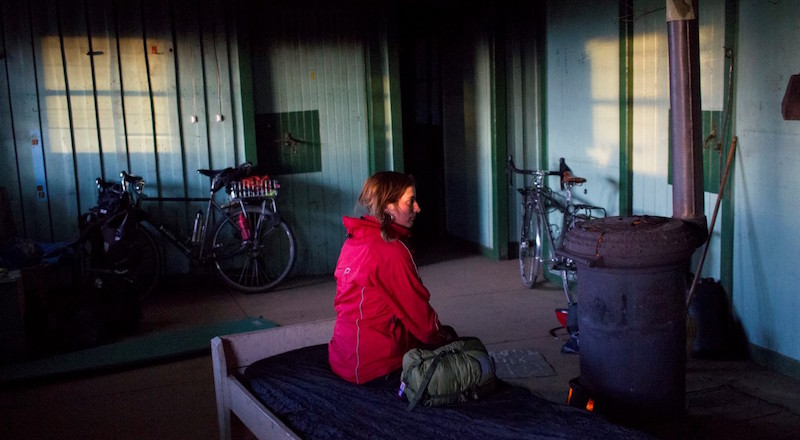
In probably about 80% of travel blogs in this world there’s that article called “How I quit my job to travel” or “How to travel for the rest of your life”. And even though they’re usually more or less repetitive (“I sold everything I had” or “I just bought a one-way ticket”), I still always click on them out of curiosity. However, that’s not what this article is about. Because, I did not quit my job to travel.
The truth is, I’ve never had a permanent job. I’ve never felt trapped in a vicious circle, which is why I don’t particularly relate to people who used to have 9 to 5 full-time jobs that they then ferociously left behind to travel. In fact, I’ve never had any job for more than six months in my life. Why? Because out of curiosity, I’ve never wanted to feel tied down to one place or one thing. And although it’s never been an easy choice (neither mentally nor monetarily), it’s definitely been worth every struggle. Because without those struggles, I might not be where I am now, cycling alone through Latin America.
How to quit a job you never had?
People always ask me what it is that I do for a living. The easy answer is that I’m a journalist and a massage therapist. The reason I say this is because usually I find it too complicated to explain in a couple of sentences the puzzle that forms my work. In reality, it’s not just one or two things. It consists of things like: consultant in intercultural communication, journalist, blogger for various websites, video reporter for news, massage therapist, programmer for a documentary film festival, radio hostess, script writer for tv, divemaster, materials coordinator for tv, substitute teacher in high schools, cameraman, trainer for human resources, actress for commercials, tourist guide, translator for short films, interpreter, barman, waitress, event manager & hostess, a rickshaw driver, organizer of camps for drug addicted people…and all those crazy little jobs in between. The thing is, jobs come and go, and whilst some I do simultaneously even at the moment, some are dormant somewhere between the past and the future. None of them have ever been permanent (except for massage therapy), so how could I ever quit any them?
Don’t wanna quit a thing
What’s more important, though, is something that has to do with my perception of life in general. I don’t think life’s a linear process where you leave one thing and do another, but rather a collection of memories which build up the present. So, when people speak about quitting a job to travel, it feels like bringing an end to one kind of a life before jumping into another. But I don’t want to quit my life. I don’t want to change my life. I’m happy with it wherever I am, even with its very volatile ups and downs. And work wise there’s something about all the jobs I’ve done that I love and would go back to any time (maybe not packing DVDs in a German factory with all my Polish friends at 6am on a Sunday, but that’s a different story). So, even though after interviewing me people love to write things like: “Sissi gave up everything she had to travel”, that’s not the case. Firstly, because I don’t feel like I’ve given up anything (Finland is still there!) and secondly, because ever since I was born, my life has just been a natural flow of coincidences.
Cycling is cheap…cheaper…cheapest
If I’ve never had a permanent job then how is it that I have the money to be on the road? I always repeat the same thing: self-sufficient long-distance cycling (and hitchhiking) is probably the cheapest possible way to travel. It’s not for free, as it still is travel. So, there are those obligatory costs involved in any other form of travel: you still need to pay for flights (unless you want to start cycling from in front of your home door), visas (in South America visas are free for EU citizens, but not for e.g. Namibians) and travel insurance (this is optional and e.g. in Argentina and Colombia health care is free for all, even travelers). But you don’t need to pay for accommodation, bus or train tickets, you don’t need to eat in restaurants and you can’t buy things because they won’t fit in your pannier bags anyway. When you have your tent and your stove with you, all you really need to pay for is the food that you cook. In addition to that, there are no major external costs when already on the road. The only ones I can think of are international sim cards or things related to fixing the bicycle. In my case, I calculate with approximately 5€/day. So, if you still wonder how I have the money, please read on.
5 TIPS: How to hit the road?
During the past years, I’ve been asked many times, how to quit everything and go. I’ve already explained some parts of what I think on this topic, but believe me, even the rest is no science fiction really. I’m no superhuman and (unfortunately) I don’t have extraterrestrial skills. Therefore, also my tips are simple. Still wanna read them? Well then, here you go!
1. Work
There’s not really any trick to it. The answer to having money (unless your parents are filthy rich) is: work. Ever since I was 17, I’ve been working for earning my own money. First as a waitress in Italy, now as a blogger and journalist for various media. I’ve studied seven years at the university (in Italy, Germany and Finland, where in the latter two the studies are for free), after which one year audiovisual communication & video journalism and one year massage therapy. Changing disciplines is not something extremely common in Finland, but it’s something I’ve wanted to do in order to have choices regarding work. I’ve wanted to be able to work both on the road as well as back home, and so I have. And when for one reason or another I haven’t been able to take up a work related to my professions, I’ve waitressed, sold plants or whatever, really. But the point is: I’ve worked.
2. Save before you go
It’s not easy to save up money. Not even in Finland. Although it’s a rich country, it’s also an expensive country. Rent is expensive, food is expensive, most things you do in the city are expensive. In fact, it’s an easy place to get lost inside the world of consumerism. Therefore, to have the money to travel, you either a) have to have a job that pays well (which I don’t) or you have to have to b) be creative when it comes to saving (I am). I don’t often buy clothes, but if I do, I do it in second hand shops (or exchange clothes with friends). I rarely eat out and never after lunch time (when the prices are double). I don’t go to parties with a high entrance fee (except for some occasional salsa events that I just can’t say ‘no’ to). I rarely use public transportation (but rather my feet or my bike), never ever take a taxi and buy the gadgets I need for work (phone, computer, cameras etc.) second hand either from friends or on the internet. So basically the only two things I spend on are: food and climbing. Having said this, I have to add that I don’t usually live my life saving for future travels. Because a) I want to enjoy life back home (which shopping and eating out have nothing to do with) and because b) even if my money runs out when abroad, it’s not the end of the world.
3. Save on the road
I’m not one of those people who saves up a bunch of money and then leaves to travel. Nope. I believe you can scrape trough with very little, depending on how you want to live. The way I live on the road is almost identical to the way I live back home, except that when cycling you don’t have to pay rent (whenever I’ve worked abroad, I’ve also had to pay rent, obviously). I don’t stay in 5 star hotels or even hostels, I don’t take trains or buses, I don’t go out to dine every evening. What do I do then? Cycling, hitchhiking, workaways, couchsurfing, camping and always, ALWAYS long-term. Yes, even in this case you do have to pay for a flight ticket (unless you use creativity and get a sponsor), but you also have the time to stay and use your imagination regarding work. In Mozambique, me and my ex opened a massage studio. In Italy, I waitressed. In Poland, I organized work camps. In Spain, I exchanged garden work for accommodation and paragliding.
4. Find out if you really want to go
Many people tell me that they would love to do a cycling trip like the one I’m on. It’s a dream for many to quit their routine and embark on an adventure. But is cycling really something you’d like to realize or is it just a daydream? The thing is, for many people it’s the latter and I completely understand. In fact, many people feel like it would be a huge sacrifice, so in that case, why on earth should such people go and cycle? There’s nothing wrong with either of the options, but would you really want to spend hours riding down empty roads of mud, completely soaked and with only oat meal to nibble on? Would you really want to suffer under the sun only to realize, you have no idea where you’re going to sleep the following night? Really? I don’t want to scare you (because I love it), but before embarking on a long-distance cycling trip (or any trip for that matter), ask yourself just one question: “Do I really want to go?” And if you do, then…
5. Go!
I once read somewhere: “If you want to do something, you find solutions. If not, you find excuses.” I don’t remember the context anymore, but I think this sentence is pure wisdom. Why? Because it’s so true. If you really want to do something, even if you have no idea why, you really should do it. People will always keep asking you “why?”, but “because I just feel like it” should be reason enough. You really don’t need to explain a feeling which just rises from deep within to anyone in this world. Not even yourself. When you feel like you want to do something, no matter how crazy it is, all you need to do is just go for it. (And if you want personal support for doing this, just send me a message!) What’s the worse that could happen? That you run out of money? You’ll figure something out. That you have an accident? Could happen anywhere. That you don’t like it? Do something else! (Believe me, I’ve done this a thousand times.). But for now, just go!
Strangerless comments: all life is real.
It’s not once of twice that I’ve heard the question: “when are you going to go back to real life?”. I’m definitely not one of those people who believes that traveling equals real life. Neither am I one of those people who thinks travel is an escape from reality. No. Here, I’d love to enter into a philosophical debate, but to spare you from further reading, let me just ask you one question: “what is travel?” When I, personally, think about the word itself, I think about moving for the sake of moving. That’s why, in my case, I prefer to use the word journey. Yes, I’m not staying in one certain place at the moment, but I also don’t consider this trip as a break away from the everyday. This is a cliché, but our whole life is a journey. And whether this journey is undertaken back home or somewhere else, simply makes no difference in the end. I work here as well as I work in Finland. There’s just as much routine for me here as there is in Helsinki. I love it here just as much as I love being back home. I don’t particularly enjoy moving all the time, but I do enjoy meeting new people and getting to know new cultures. And even though this is a lot easier when on the move, the journey always continues even when still. So, welcome to real life. Wherever it is you are.


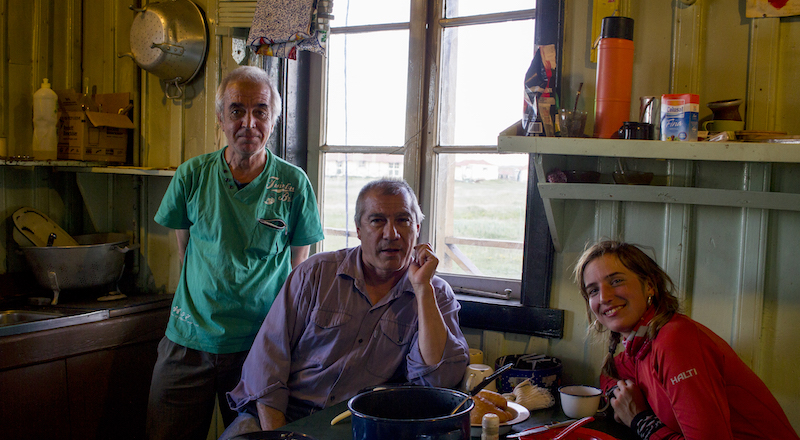
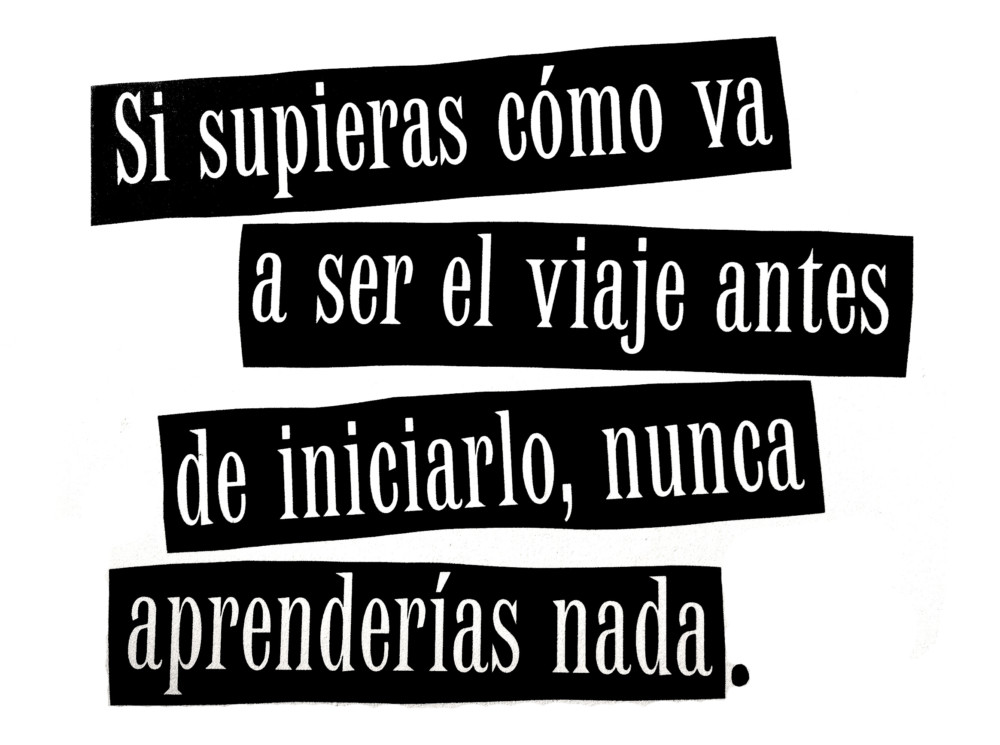
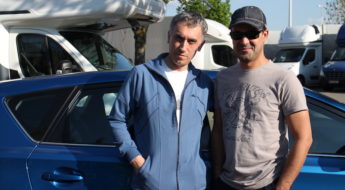
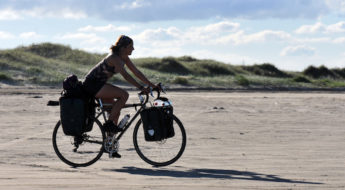

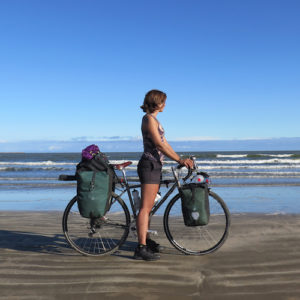



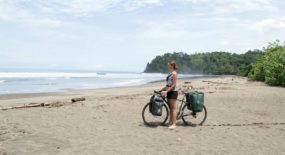

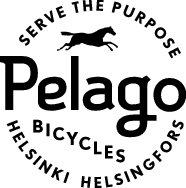





That is a very long list of jobs! Love your perspective of life and travel. I agree that everyone has a different story and things are always a choice, either you do it or you just keep talking about it. Friends keep telling me how they envy me because I travel quite a lot, my reply is always the same – you can do it too if you want.
Dear Dariel, totally agree! The envy is useless 😀 Probably it’s just a thought of your life they envy, but if they did it, would they like it? That’s the million dollar question! People who are happy with what they do are always enviable – whatever it is they’re doing 😀
Well said, Sissi. I also don’t think that you have to sell and quit everything to travel. Besides, I am probably one of the those people who need a place to come back to, re-organize, re-plan, and then go back on a road. I don’t mind changing that ‘come back to’ place once in a while though 🙂
Thanks, Lena! I just had another thought from another blogger: how can anyone expect to be taken seriously as a professional, if we keep on autopromoting the image that “we don’t work”. Not too good for the industry 😀 And yes, a place to go back to is soooo good 😀 I, myself, couldn’t even begin to call myself a nomad – although yes, that place does tend to change every once in a while ;D